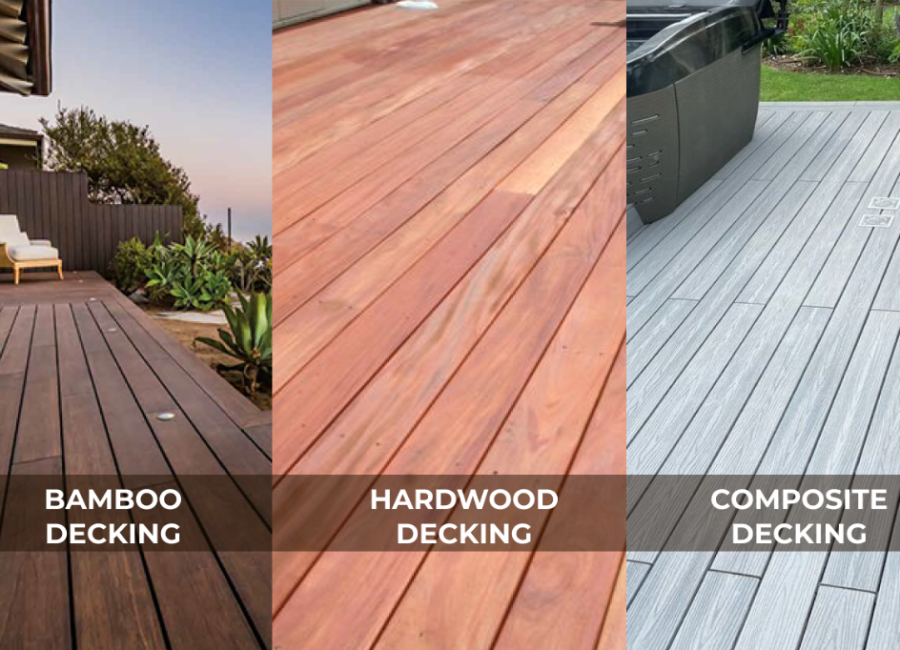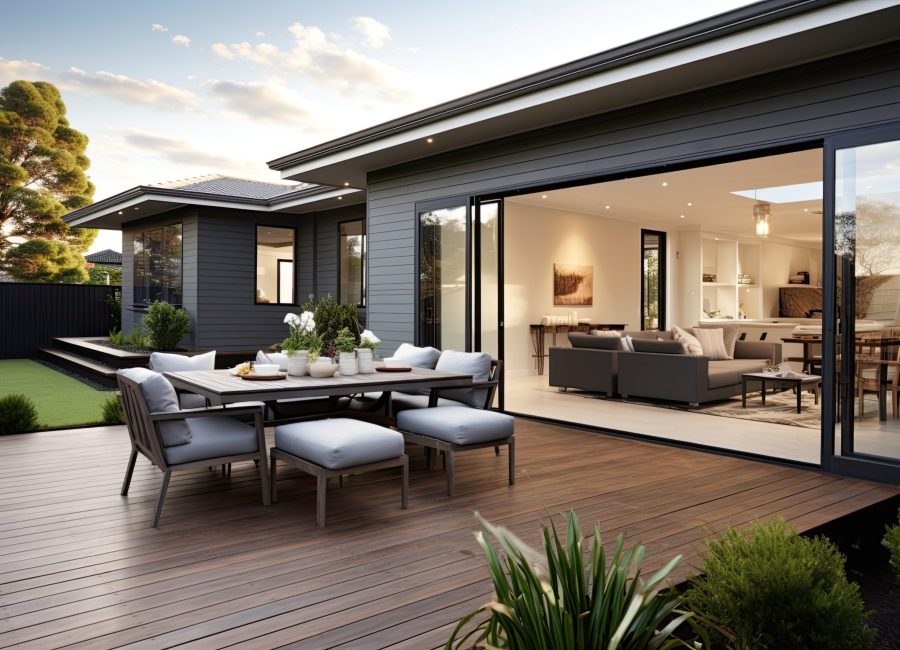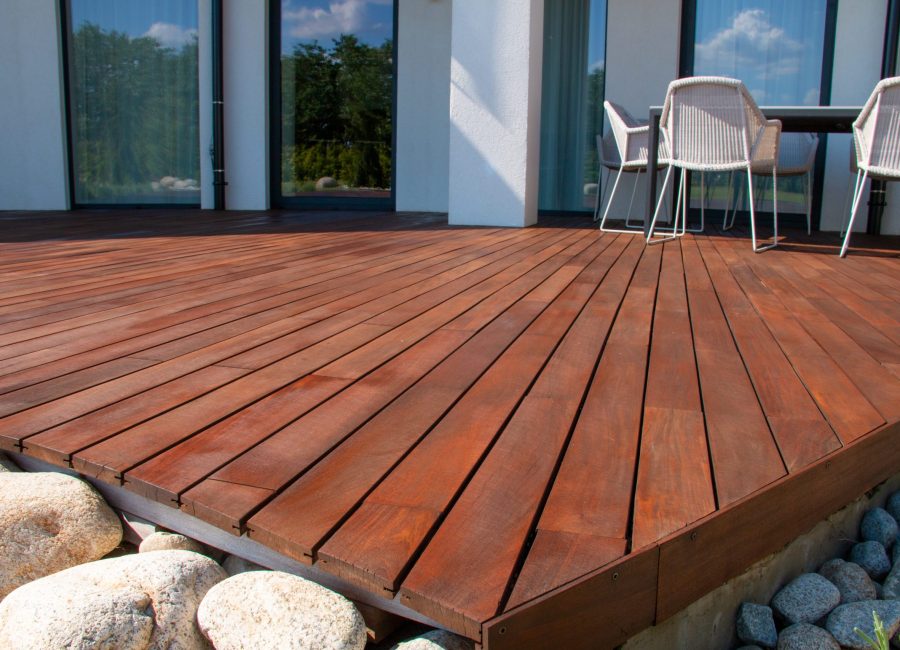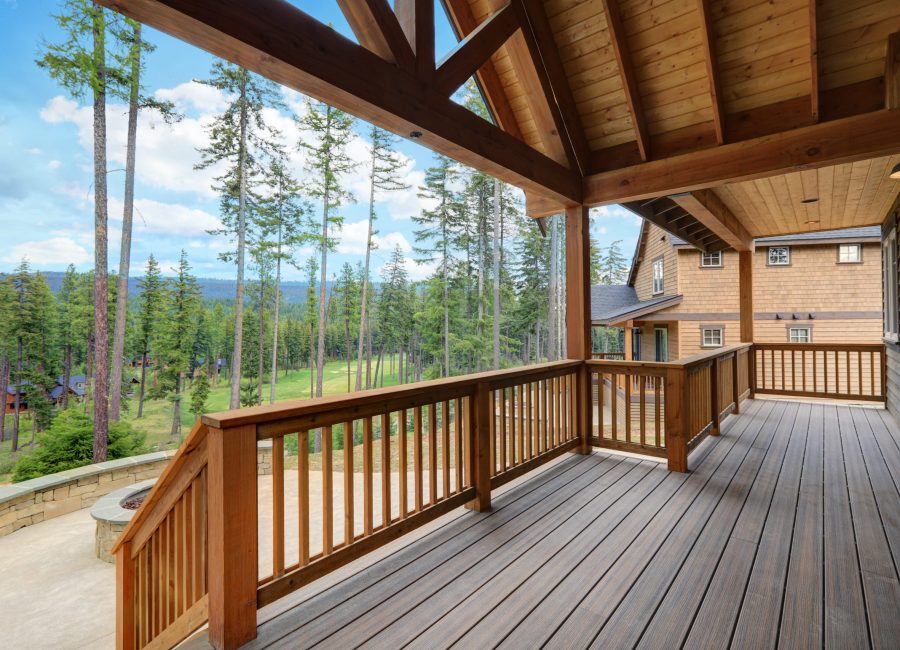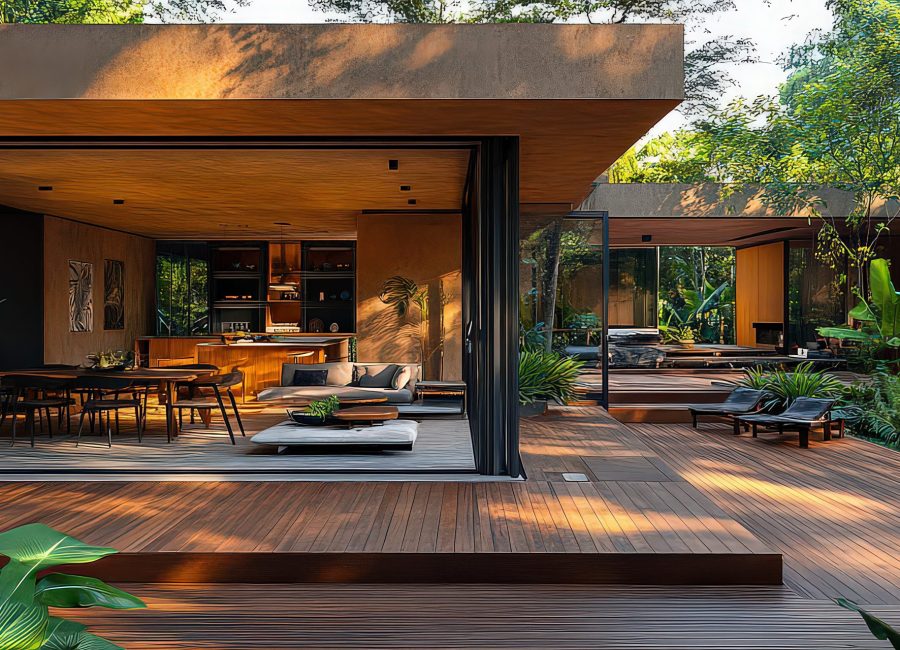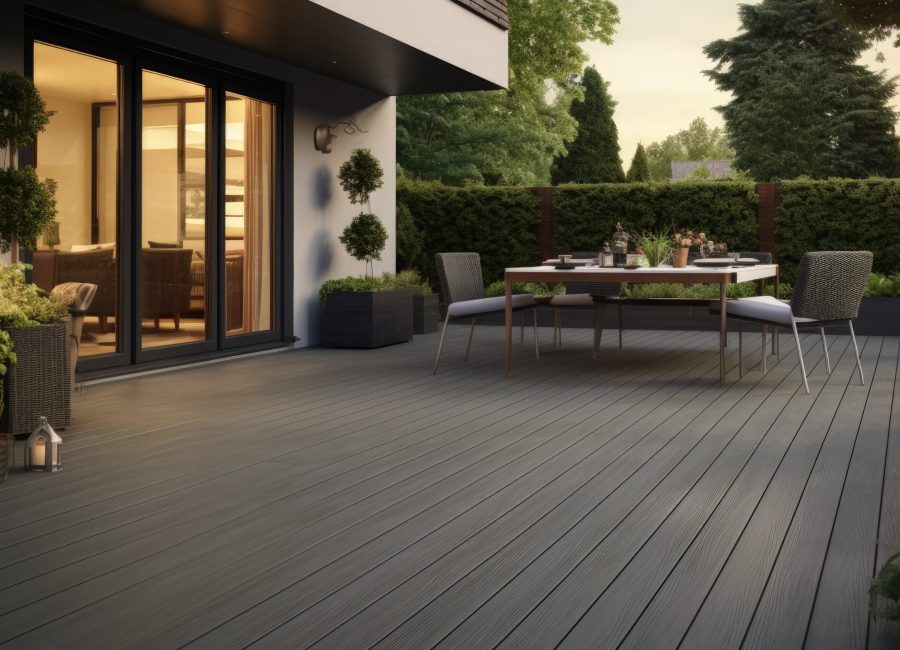Are so called “sustainable” alternatives to tropical and other hardwoods really better for the environment? It’s time to question the label and reality.
Many people believe that wood is always an environmental problem. But before making any decision, it is essential to understand that certified wood plays a crucial role in sustainable forest management, and that many alternatives are not as green as they look.
In gardening, landscaping and construction, we are surrounded by “sustainability” slogans. Anyone building a fence, deck, pergola, house or retaining wall is often told that hardwood is “bad for the environment” and that it is better to choose supposedly eco-friendly alternatives such as bamboo or recycled plastic composites.
But are these alternatives really better for the environment?
.
Greenwashing in practice
Many of these supposedly green choices are presented as eco-friendly, but upon closer examination, reality is far less pure. Sustainability is not about words on a label, but about facts regarding raw materials, energy, origin, processing, and end-of-life.
.
Here are some popular alternatives, with critical observations:
Composite (wood + plastic)
A mix of wood fibers and plastics such as polyethylene or PVC. Not easily recyclable due to mixed materials. Production consumes a lot of energy. The final product is synthetic and must eventually be burned or landfilled.
- Claim: Maintenance-free
- Reality: Hard to recycle, usually ends up as waste
.
Bamboo composite
Bamboo grows quickly, but is usually pressed with resins and glues containing formaldehyde and other chemicals. Often imported from Asia, increasing CO₂ footprint. The final product is not fully natural.
- Claim: Natural alternative
- Reality: Chemical product with limited durability
.
Recycled plastics
Often a mix of different plastics. The word “recycled” does not mean continuous reuse; usually it’s a one-time recycling process, after which it becomes waste. Needs UV protection, not biodegradable, and releases harmful substances when burned.
- Claim: Circular
- Reality: Limited reuse, ends up as waste
.
What makes hardwood truly sustainable?
Hardwood is often unfairly labeled as a villain. Yes, illegal logging, deforestation, and poor practices exist but that is only one side of the story. There is also certified and controlled tropical hardwood.
Strict certification (FSC or PEFC) ensures that:
- Wood comes from legally selected areas, not illegal logging;
- Forest management promotes natural regeneration;
- Local communities are involved and paid;
- Wood has an extremely long lifespan (25–50 years or more), making it an ecological and durable resource.
.
Use it or lose it
If tropical forests have no economic value, they will be cleared for agriculture, soy, or palm plantations.
Harvesting wood sustainably means:
- Keeping the forest standing;
- Providing jobs and future for local communities;
- Reducing pressure on forests through added value instead of destruction.
Even in tropical regions, sustainability depends on responsible management and clear rules. Tropical forests, when managed correctly, are essential to biodiversity and life itself.
.
What is truly sustainable?
Sustainability is not a label or a marketing slogan. It is the sum of:
- Raw material origin
- Energy consumption
- Processing
- Durability
- End-of-life (waste or recycling)
.
Conclusion
Don’t be fooled by a “green” appearance. Many alternatives that seem eco-friendly are not truly sustainable.
- Tropical hardwood without rules is a problem.
- Hardwood with rules is the best possible choice.
The TIMBRA Tech product line uses only wood from sustainable sources, 100% FSC or PEFC certified. In addition, with our thermo-treatment technology, we add value to lesser-used wood species, reducing pressure on the most exploited species and enhancing the value of forests as a whole.
Be conscious. Support sustainable forest management. And be critical of all materials including the so-called “green” ones.

